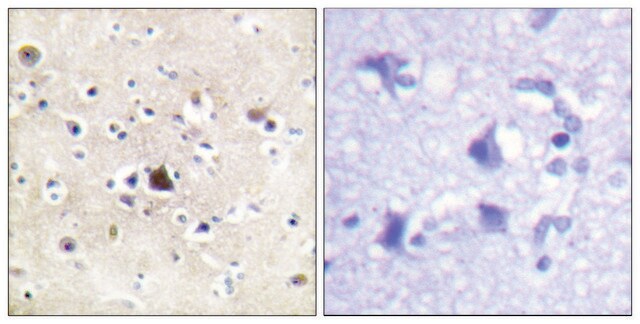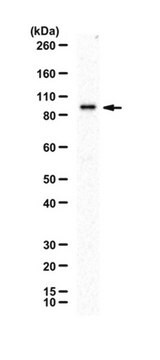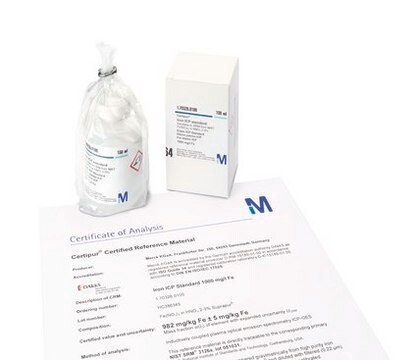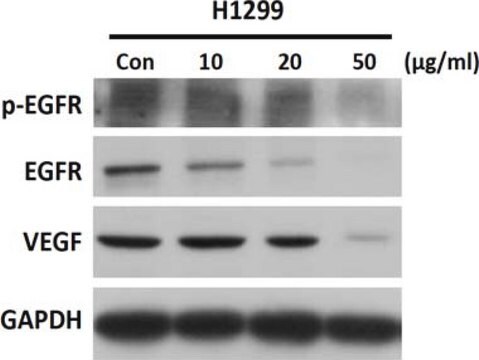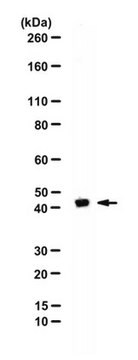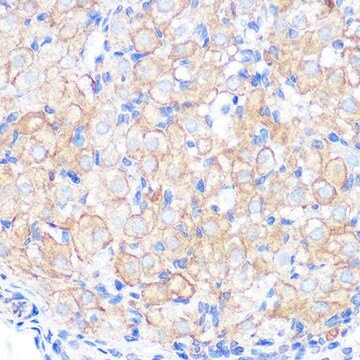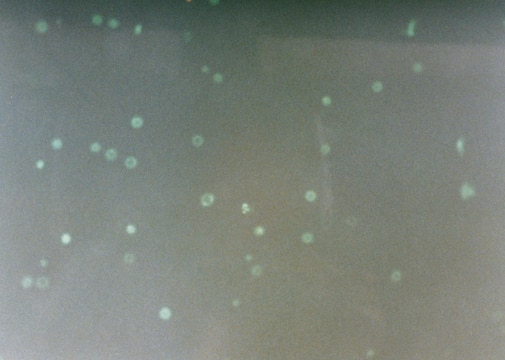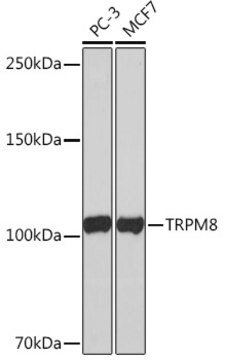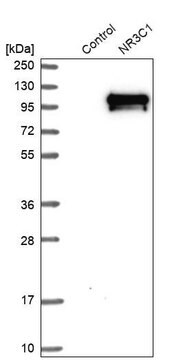ABS1582
Anti-phospho Glucocorticoid Receptor Antibody (Ser287)
from rabbit, purified by affinity chromatography
Synonym(e):
Glucocorticoid receptor, GR, Nuclear receptor subfamily 3 group C member 1
About This Item
Empfohlene Produkte
Biologische Quelle
rabbit
Qualitätsniveau
Antikörperform
affinity isolated antibody
Antikörper-Produkttyp
primary antibodies
Klon
polyclonal
Aufgereinigt durch
affinity chromatography
Speziesreaktivität
mouse, rat, human
Methode(n)
ChIP: suitable
immunofluorescence: suitable
western blot: suitable
NCBI-Hinterlegungsnummer
UniProt-Hinterlegungsnummer
Versandbedingung
ambient
Posttranslationale Modifikation Target
phosphorylation (pSer287)
Angaben zum Gen
rat ... Nr3C1(24413)
Allgemeine Beschreibung
Spezifität
Immunogen
Anwendung
Chromatin Immunohistochemistry (ChIP) Analysis: A representative lot detected enhanced Ser287 phosphorylation of GR recruited to the SGK1 and GILZ regulatory regions upon dexamethasone treatment or BDNF/dexamethasone cotreatment of 293TrkB cells stably expressing wild-type rat GR (Lambert, W.M., et al. (2013). Mol. Cell. Biol. 33(18):3700-3714).
Immunofluorescence Analysis: A representative lot detection GR S287 phosphorylation in hypothalamic CRH-producing neurons by fluorescence immunohistochemistry staining of 4% paraformaldehyde-fixed free-floating mouse coronal sections. GR S287 phosphorylation decreased in brain tissue from BDNF+/ and TrkB TrkB+/ mice, increased upon inducible BDNF overexpression and decreased upon Cre-dependent excision in transgenic mice with floxed GR allele (Lambert, W.M., et al. (2013). Mol. Cell. Biol. 33(18):3700-3714).
Western Blotting Analysis: A representative lot detected BDNF-induced GR Ser287 phosphorylation in primary rat cortical neurons, PC12 cells expressing TrkB, and 293TrkB cells stably expressing wild-type rat GR, as well as upregulated GR Ser287 phosphorylation in mouse brain following dexamethasone injection or stress-induced elevation of endogenous glucocorticoids by forced swim (Lambert, W.M., et al. (2013). Mol. Cell. Biol. 33(18):3700-3714).
Qualität
Western Blotting Analysis: 2.1 µg/mL of this antibody detected 100 nM dexamethasone/100 nM of H2O2 treatment-induced glucocorticoid receptor Ser287 phosphorylation in primary ear fibroblasts from wild-type, but GR S287A-knock-in mice.
Zielbeschreibung
Physikalische Form
Sonstige Hinweise
Sie haben nicht das passende Produkt gefunden?
Probieren Sie unser Produkt-Auswahlhilfe. aus.
Lagerklassenschlüssel
12 - Non Combustible Liquids
WGK
WGK 1
Analysenzertifikate (COA)
Suchen Sie nach Analysenzertifikate (COA), indem Sie die Lot-/Chargennummer des Produkts eingeben. Lot- und Chargennummern sind auf dem Produktetikett hinter den Wörtern ‘Lot’ oder ‘Batch’ (Lot oder Charge) zu finden.
Besitzen Sie dieses Produkt bereits?
In der Dokumentenbibliothek finden Sie die Dokumentation zu den Produkten, die Sie kürzlich erworben haben.
Unser Team von Wissenschaftlern verfügt über Erfahrung in allen Forschungsbereichen einschließlich Life Science, Materialwissenschaften, chemischer Synthese, Chromatographie, Analytik und vielen mehr..
Setzen Sie sich mit dem technischen Dienst in Verbindung.
